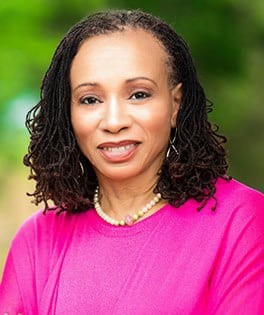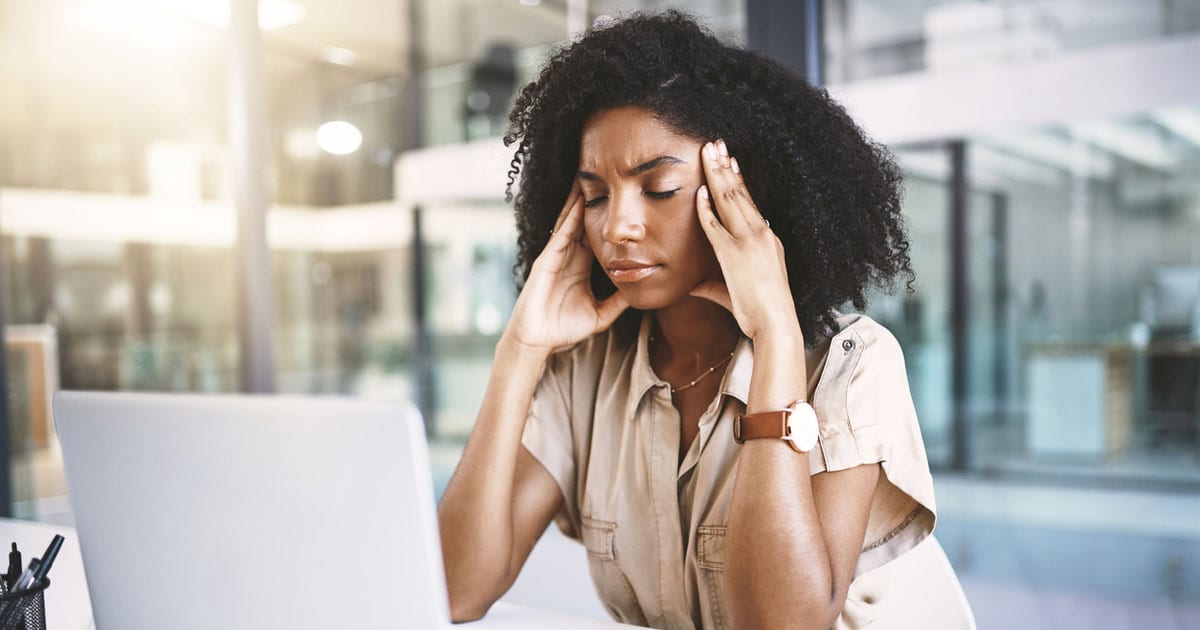It’s Time to Talk about Black Fatigue
While leading diversity and inclusion sessions in corporations, Mary-Frances Winters repeatedly heard Millennials say they were exhausted.
“I was like, exhausted? How are you exhausted? You’re 30 years old,” recalls Winters, a Baby Boomer and longtime diversity and inclusion leader who spoke in January at the Justice, Equity and Inclusion Speaker Series event, Black Fatigue: Racism and Its Impacts on Mental Health. The event was presented by the Massachusetts Conference for Women, The Boston Globe, and State Street.
But as she pressed further, she heard them say they were exhausted from microaggressions, continued acts of racism and discrimination, and the amplification of it all over social media.
“That got me thinking,” says Winters, founder and CEO of The Winters Group and author of Black Fatigue: How Racism Erodes the Mind, Body, and Spirit.
“What I am learning from my younger brothers and sisters is that we are fatigued, and we have to take care of ourselves,” says Winters. Since researching the topic for her new book, she adds, she has also learned that scientists are increasingly recognizing a correlation between racism and physical and mental maladies.
That is why it is critical, she says, that we finally have real conversations about racism by understanding the cycles of Black Fatigue, the striking lack of progress on racial equity, and the words we need to be willing to use to have meaningful conversations about racism now.
The Cycle of Black Fatigue
Winters defines Black Fatigue as the “repeated variations of stress caused by centuries of racism resulting in extreme exhaustion causing physical, mental and spiritual maladies that are passed down from generation to generation.”
Stress caused by racism is passed down, among other ways, by getting into the cellular system, she says.
And, that leads to inherited disparities in health, with new studies showing that discrimination leads to aging faster, a lifelong buildup of stress, and eventually higher levels of disease and mortality.
A Striking Lack of Progress on Racial Equity
“People have asked why have there been protests? Because we have not made progress,” Winters says. “They ask: Why haven’t we made progress? It’s because of systemic racism.” Consider highlights of the socio-economic snapshot Winters presented:
- Homeownership
- In 1976, 44 percent of Blacks owned homes.
- In 2015, 43 percent did.
- All other groups increased their rate of homeownership.
- Median household income
- In 2007, it was approximately $40,000.
- In 2017, it remained approximately $40,000.
- All other groups increased their median household income (with the exception of Asians, who started with a significantly higher income.)
- Unemployment: Black and brown people are 30 percent less likely to get a call back after an interview.
- Incarceration
- Black people represent 12 percent of the population.
- They represent 33 percent of the people in prison.
- Education
- In 1954, the U.S. Supreme Court ruled in Brown v. the Board of Education that state laws establishing racial segregation in public schools are unconstitutional.
- Today, schools are more segregated than they were in 1954.
- Voter suppression: It was not only rampant in last year’s election. It has been since 1865.
Words We Need to Be Willing to Say
“We haven’t had the conversations about racism in the past because of white fragility, embarrassment, shame, guilt,” says Winters. “I think we have to get over that and have the conversation.” And to do so, Winters says there are certain words we need to be willing to say that many have hesitated to say before. They include:
- White supremacy: “Many people think when you say ‘white supremacy’ you are talking about people in hoods and neo-Nazis but there is a culture, an ideology of white supremacy we have to talk about,” says Winters.
- Equity. “Some organizations won’t put ‘equity’ in their diversity framework. But equity recognizes that there is not a level playing field.”
- Anti-racism. “Organizations don’t like to use ‘anti-racism’ because they fear someone might file a lawsuit,” says Winters. But it has to be acknowledged that anti-racism efforts are required to change the system.
- Privilege. “I often hear from white people ‘I don’t have privilege because I grew up poor.’ But ‘privilege’ is not binary. You might not have it in some aspects and have it in others.
“For me, I have privilege because I am a member of the middle class and because I am educated; and we overvalue those characteristics. I don’t have privilege as a woman or a Black person because we have undervalued those.”
- White fragility. This is the phrase popularized by sociologist Robin DiAngelo, to describe “the disbelieving defensiveness that white people exhibit when their ideas about race and racism are challenged—and particularly when they feel implicated in white supremacy.”
Finally, Winters advises white people not to think “I am here to ‘fix’ and ‘dismantle’ racism.” More useful, she suggests is to think: “I recognize that I must understand who I am in relation to the system of racism in order to disrupt and dismantle it.”
To that end, she says, we need more white people to understand how core their race is to their identity. (Studies show 75 percent of Black people think race is core to their identity while only 15 percent of white people do.) People also need more exposure to difference, more experience with difference, and more education—all of which, she suggests, will lead to more empathy.
 Mary-Frances Winters joined Kimberly Atkins, a senior opinion writer at The Boston Globe, and Kem Danner, a senior vice president with State Street Corporation, last month at “Black Fatigue: Racism and Its Impacts on Mental Health.” The event was presented by the Massachusetts Conference for Women, The Boston Globe, and State Street. Want to learn more? Listen to the entire conversation.
Mary-Frances Winters joined Kimberly Atkins, a senior opinion writer at The Boston Globe, and Kem Danner, a senior vice president with State Street Corporation, last month at “Black Fatigue: Racism and Its Impacts on Mental Health.” The event was presented by the Massachusetts Conference for Women, The Boston Globe, and State Street. Want to learn more? Listen to the entire conversation.